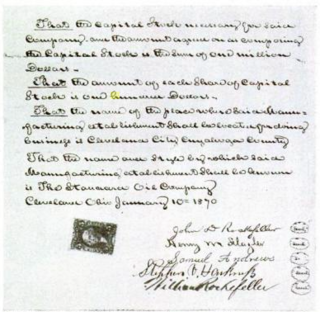Related Research Articles
Administrative law is a division of law governing the activities of executive branch agencies of government. Administrative law includes executive branch rule making, adjudication, and the enforcement of laws. Administrative law is considered a branch of public law.

A societas Europaea is a public company registered in accordance with the corporate law of the European Union (EU), introduced in 2004 with the Council Regulation on the Statute for a European Company. Such a company may more easily transfer to or merge with companies in other member states.
Business is the practice of making one's living or making money by producing or buying and selling products. It is also "any activity or enterprise entered into for profit."

A condominium is an ownership regime in which a building is divided into multiple units that are either each separately owned, or owned in common with exclusive rights of occupation by individual owners. These individual units are surrounded by common areas that are jointly owned and managed by the owners of the units. The term can be applied to the building or complex itself, and is sometimes applied to individual units. The term "condominium" is mostly used in the US and Canada, but similar arrangements are used in many other countries under different names.
A foundation is a type of nonprofit organization or charitable trust that usually provides funding and support to other charitable organizations through grants, while also potentially participating directly in charitable activities. Foundations encompass public charitable foundations, like community foundations, and private foundations, which are often endowed by an individual or family. Nevertheless, the term "foundation" might also be adopted by organizations not primarily engaged in public grantmaking.

The Freedom of Information Act 2000 is an Act of the Parliament of the United Kingdom that creates a public "right of access" to information held by public authorities. It is the implementation of freedom of information legislation in the United Kingdom on a national level. Its application is limited in Scotland to UK Government offices located in Scotland. The Act implements a manifesto commitment of the Labour Party in the 1997 general election, developed by David Clark as a 1997 White Paper. The final version of the Act was criticised by freedom of information campaigners as a diluted form of what had been proposed in the White Paper. The full provisions of the act came into force on 1 January 2005.

A community interest company is a form of social enterprise in the United Kingdom intended "for people wishing to establish businesses which trade with a social purpose..., or to carry on other activities for the benefit of the community".

In corporate governance, a company's articles of association is a document that, along with the memorandum of association forms the company's constitution. The AoA defines the responsibilities of the directors, the kind of business to be undertaken, and the means by which the shareholders exert control over the board of directors.

The Constitution of the Republic of Singapore is the supreme law of Singapore. A written constitution, the text which took effect on 9 August 1965 is derived from the Constitution of the State of Singapore 1963, provisions of the Federal Constitution of Malaysia made applicable to Singapore by the Republic of Singapore Independence Act 1965, and the Republic of Singapore Independence Act itself. The text of the Constitution is one of the legally binding sources of constitutional law in Singapore, the others being judicial interpretations of the Constitution, and certain other statutes. Non-binding sources are influences on constitutional law such as soft law, constitutional conventions, and public international law.
The memorandum of association of a company is an important corporate document in certain jurisdictions. It is often simply referred to as the memorandum. In the UK, it has to be filed with the Registrar of Companies during the process of incorporating a company. It is the document that regulates the company's external affairs, and complements the articles of association which cover the company's internal constitution. It contains the fundamental conditions under which the company is allowed to operate. Until recently it had to include the "objects clause" which let the shareholders, creditors and those dealing with the company know what is its permitted range of operation, although this was usually drafted very broadly. It also shows the company's initial capital. It is one of the documents required to incorporate a company in India, the United Kingdom, Ireland, Canada, Nigeria, Nepal, Bangladesh, Pakistan, Afghanistan, Sri Lanka, and Tanzania and is also used in many of the common law jurisdictions of the Commonwealth.
Table A in UK company law is the old name for the Model Articles or default form of articles of association for companies limited by shares incorporated either in England and Wales or in Scotland before 1 October 2009 where the incorporators do not explicitly choose to use a modified form. Table A was first introduced by the Joint Stock Companies Act 1856, and then under its current name of 'Table A' by the Companies Act 1862.

The Companies Act 2006 is an act of the Parliament of the United Kingdom which forms the primary source of UK company law.
There are many ways in which a business may be owned under the legal system of England and Wales.

The United Kingdom company law regulates corporations formed under the Companies Act 2006. Also governed by the Insolvency Act 1986, the UK Corporate Governance Code, European Union Directives and court cases, the company is the primary legal vehicle to organise and run business. Tracing their modern history to the late Industrial Revolution, public companies now employ more people and generate more of wealth in the United Kingdom economy than any other form of organisation. The United Kingdom was the first country to draft modern corporation statutes, where through a simple registration procedure any investors could incorporate, limit liability to their commercial creditors in the event of business insolvency, and where management was delegated to a centralised board of directors. An influential model within Europe, the Commonwealth and as an international standard setter, UK law has always given people broad freedom to design the internal company rules, so long as the mandatory minimum rights of investors under its legislation are complied with.

The Tribunals, Courts and Enforcement Act 2007 is an Act of the Parliament of the United Kingdom. It provides for several diverse matters relating to the law, some of them being significant changes to the structure of the courts and fundamental legal procedures. Part 1 provides a scheme for radical overhaul of the tribunal system in the UK, creating a new unified structure with two new tribunals to embrace the former fragmented scheme, along with a Senior President of Tribunals. Part 2 defines new criteria for appointment as a judge, generally reducing the length of experience required with the aim of increasing diversity in the judiciary. Part 3 creates a new system of taking control of goods in order to enforce judgments and abolishes ancient common law writs and remedies such as fieri facias, replevin and distress for rent. It introduces a modern system of 'certified enforcement agents' and 'exempted enforcement agents' which includes civil servants such as court officers and County Court bailiffs, civilian enforcement officers and police officers. Part 4 makes some changes to attachment of earnings and charging orders to make recovery of debts more straightforward. Part 5 makes some changes to insolvency practice in order to provide low-cost protection for people who have previously been excluded owing to their small debts and lack of assets. Part 6 provides protection from seizure for foreign antiquities and artefacts on display in the UK and whose provenance is alleged to be broken by misappropriation. Such artefacts can only be seized on a court order that was compelled by a Community obligation or a treaty obligation.
In Canada, the term quasi-constitutional is used for laws which remain paramount even when subsequent statutes, which contradict them, are enacted by the same legislature. This is the reverse of the normal practice, under which newer laws trump any contradictory provisions in any older statute.

The British Virgin Islands company law is the law that governs businesses registered in the British Virgin Islands. It is primarily codified through the BVI Business Companies Act, 2004, and to a lesser extent by the Insolvency Act, 2003 and by the Securities and Investment Business Act, 2010. The British Virgin Islands has approximately 30 registered companies per head of population, which is likely the highest ratio of any country in the world. Annual company registration fees provide a significant part of Government revenue in the British Virgin Islands, which accounts for the comparative lack of other taxation. This might explain why company law forms a much more prominent part of the law of the British Virgin Islands when compared to countries of similar size.

Cayman Islands company law is primarily codified in the Companies Law and the Limited Liability Companies Law, 2016, and to a lesser extent in the Securities and Investment Business Law. The Cayman Islands is a leading offshore financial centre, and financial services form a significant part of the economy of the Cayman Islands. Accordingly company law forms a much more prominent part of the law of the Cayman Islands than might otherwise be expected.
Anguillan company law is primarily codified in three principal statutes:
- the International Business Companies Act ;
- the Companies Act ; and
- the Limited Liability Companies Act.

The Corporate Insolvency and Governance Act 2020 is an act of the Parliament of the United Kingdom relating to companies and other entities in financial difficulty, and which makes temporary changes to laws relating to the governance and regulation of companies and other entities.
References
- ↑ section 20, Companies Act 2006
- ↑ Department for Business Innovation & Skills, "Companies Act 2006 final implementation – changes to constitutional documents, including model articles: a summary of what the new approach means" Archived 2011-12-06 at the Wayback Machine paragraph 1.21 - fetched on 9 December 2011
- ↑ SI 2009/2767
- ↑ SI 2009/2363